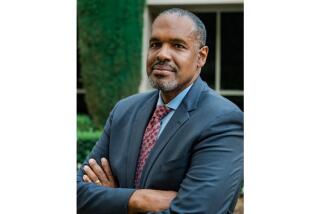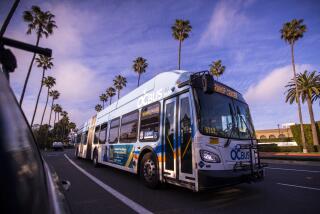OCTD Program Enables Employees to See How the Other Half Works
- Share via
Tom Fallas, who supervises bus mechanics for the Orange County Transit District, had no idea what radio communications supervisor Mark Lucy’s job entailed until each man got a chance to see how the other worked.
Now, says Fallas, he understands how important it is for Lucy to be able to respond to bus breakdowns quickly by communicating with drivers in the field and with maintenance people simultaneously, in order to keep the public happy with the service. And Fallas says that his recent stint at the dispatch microphone, communicating directly with bus drivers himself, showed that he could talk the drivers through minor mechanical problems that otherwise would have resulted in a costly, time-consuming exchange of spare buses for buses that didn’t actually need to be brought to the repair yard right away.
“I thought it was fantastic,” Fallas said of his four-day job switch. “I have a much better understanding about what is happening with some of these other positions.”
Fallas is one of the first participants in a 2-month-old experiment at OCTD in which supervisors from one work area spend four days with counterparts who perform vastly different tasks.
Eventually, all OCTD supervisors will go through the program, the brainchild of Fallas’ boss, John Roberts, superintendent of vehicle maintenance.
“At first we thought of just spending a couple of hours, but then we realized that wouldn’t give the supervisors a feel for the other person’s job. So now they report to work at the same time as their counterpart and are totally committed for four days,” Roberts said.
Leslie Fulton, OCTD field operations supervisor and a former bus driver, said she’s looking forward to her stint at the maintenance yard in August.
“From the people I’ve talked to who have already done it, it really helps you see things from the other person’s point of view. Although we all work for OCTD, the different work groups are somewhat isolated from each other. There’s often a lack of communication. A bus operator whose bus breaks down has trouble understanding why a maintenance crew may say we can’t have a replacement bus right away but can have one maybe in 10 minutes. Now we can see what it takes to get to the point where a bus is ready to go out on the road.”
More to Read
Sign up for Essential California
The most important California stories and recommendations in your inbox every morning.
You may occasionally receive promotional content from the Los Angeles Times.













